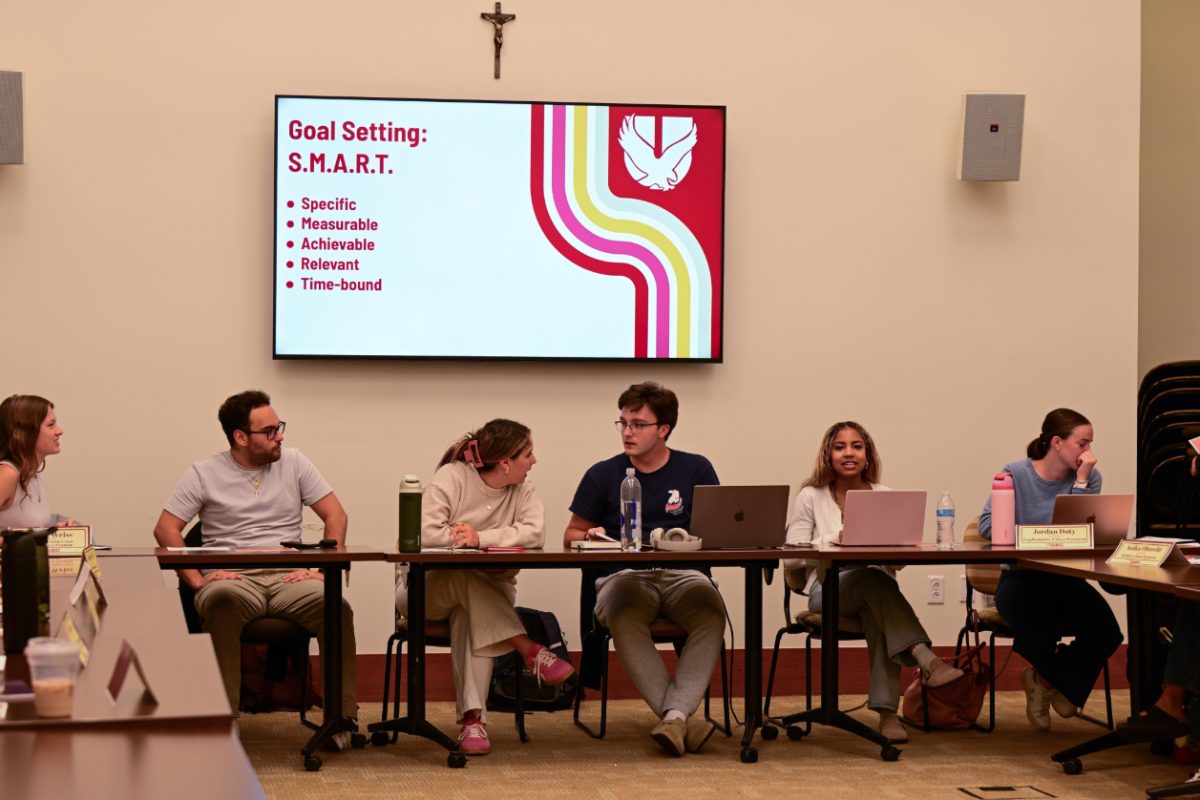
(Ellie El-Fishawy / Heights Editor)
Gabriel Hallberg, MCAS ’26, urged the UGBC Senate Tuesday night to provide resources to students on how to handle encounters with Immigration and Customs Enforcement (ICE) after a marked ICE vehicle was spotted in front of St. Ignatius Church on Saturday afternoon.
“The response to this incident shows how ill-prepared the student body is,” Hallberg said.
Hallberg, who spoke during the public comment portion of the meeting, criticized the University’s lack of communication during the incident, saying that most students found out about the incident from anonymous student forums like Fizz and Herrd rather than an official statement or alert.
“We need a better system than anonymous social media apps to alert people of what’s going on on campus,” Hallberg said.
Although it is unclear whether ICE will conduct operations near BC again, Hallberg emphasized that the student body needs to be prepared.
“I don’t know if any of you all are scared, but this is a very serious issue, and we need to be turning that fear into education and appropriate action,” Hallberg said. “Saturday was the warning call. Next time ICE is spotted, it’s probably going to be a lot more serious.”
According to Hallberg, UGBC has an important role to play in keeping the BC community informed and safe if ICE is spotted near campus again.
“A lot of the resources we have at BC are because of people like you and me starting them, and then the administration adopts them—not the other way around,” Hallberg said. “We need preventative measures. We need to educate our students before something happens.”
Hallberg highlighted online resources that help students navigate interactions with ICE and understand the rights of international students.
“On the Boston College Office of Global Engagement—about halfway down the page and very poorly lit—there are resources there that are the right resources,” Hallberg said. “Boston College is already showing these things, we just need to do a better job at making those things more public knowledge and more available, as a student body.”
Hallberg encouraged student senators to help share this information with the rest of the student body.
“I agree with what you’re saying, it’s our job as the Undergraduate Government of Boston College to make sure that all students feel safe,” said Will Cortes, student senator and MCAS ’28. “I think there are a lot of different resources that we as UGBC members can look for to try to get out to students.”
While conversations about UGBC’s role continue, Cortes emphasized the resources available on the websites for the Office for International Student Scholars and the Center for Human Rights and International Justice.
Cristina Gregory, academic affairs committee chair and MCAS ’26, said compiling a list of resources is a task UGBC could effectively take on.
“Our resources might be a little bit scattered right now,” Gregory said. “I don’t know if many people know where to find them. I think it was [Hallberg’s] idea to gather resources and to find a homebase for things. And that’s something that is very tangible that we can do.”